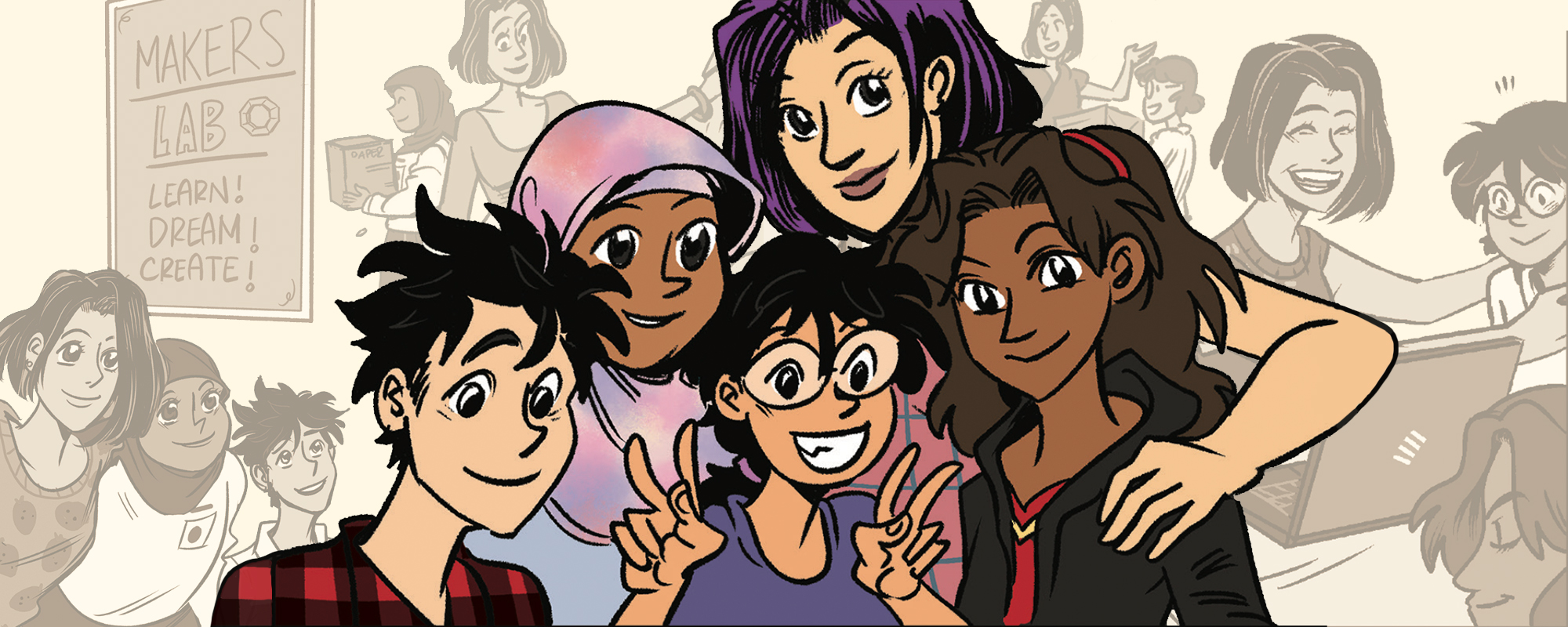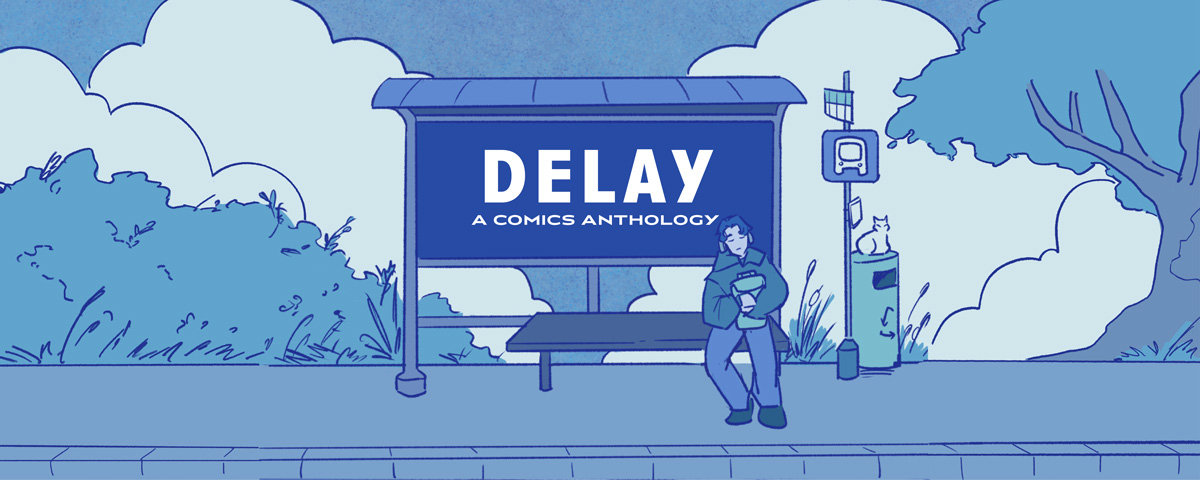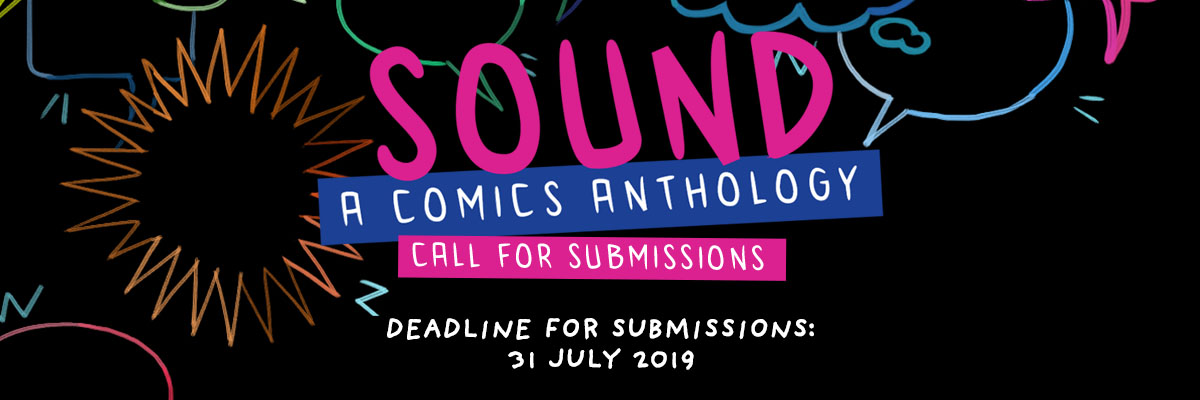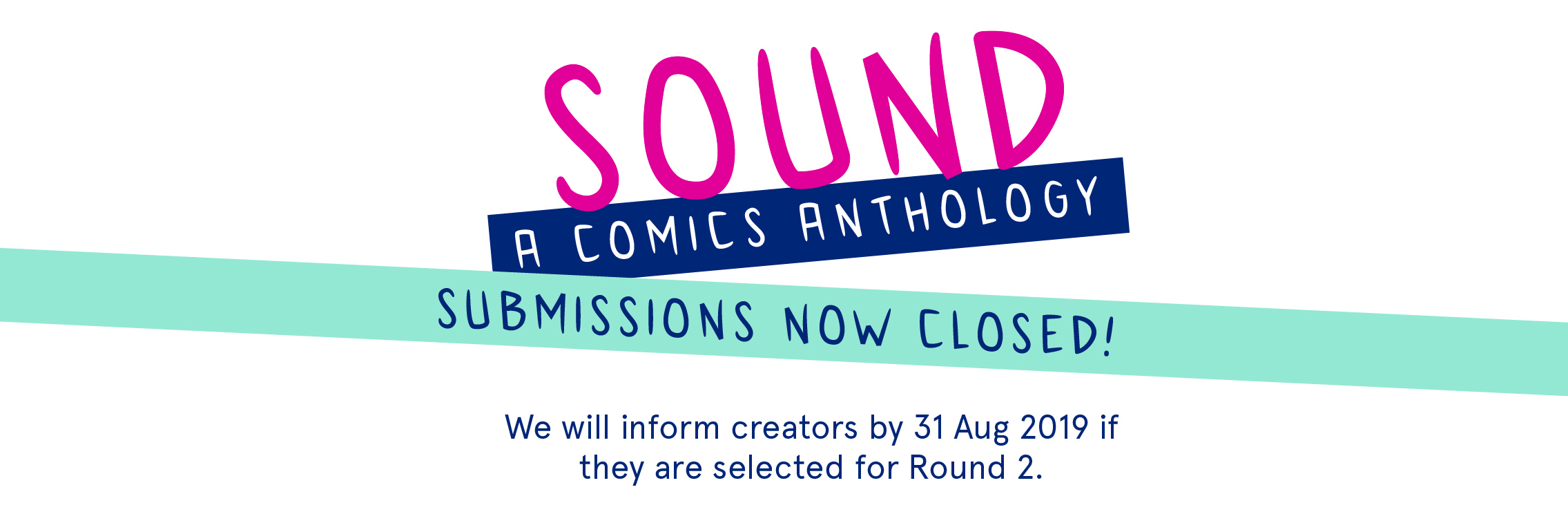Mentors are a vital part of personal and educational development. A mentor could be anyone: a parent, a maths tutor, an art teacher, a librarian, or even a volunteer at school. They are not just enthusiasts or professionals in their field, but also enjoy sharing their expertise and know-how, and are passionate and truly care about their students’ growth.
Remember Miss Tilly Tay from The Makers Club graphic novel series? She’s a great mentor character in the books that offers support and guidance to the students in the Makers Club! A mentor can spark a sense of excitement and the joy of discovery in a student. They make learning a safe space – one that allows for mistakes and failure, and one that encourages creativity, exploring new ideas and concepts, and creates an even playing field.
Now, you may wonder, what actually goes into making a good mentor? Here are seven integral qualities that a great mentor – like Miss Tilly – encompasses!

Inspiring students through sharing experiences and expertise
While knowledge, experience, and expertise are assets any mentor may have, the willingness and desire to impart the information, and to pay it forward, takes mentorship to another level. Good mentors are willing to share not only the best parts of their experiences, but also their failures. Both sides of the coin provide valuable opportunities for learning and can help mentees on their own paths.
The best mentors are curious learners themselves! They have the willingness to learn and grow, which makes mentorship a two-way street. Miss Tilly from The Makers Club series is the Head Librarian at Pangolin Secondary school, but she is open to more than just her responsibilities at the library. She makes DIY knick knacks, encourages students to create, and also created a Maker’s Lab where students can explore different skills and try their hand at building things.

Providing empathic guidance
Mentors need to be able to commit to their mentees, but more importantly, they need to be available to them. Mentoring requires time and effort; emotions and space. Sometimes, this includes an investment in your mentees’ lives – school, and sometimes personal.
We can think of mentors as a compass that guides on uncertain paths, and a lighthouse that beckons a reprieve when the waves prove too challenging. Great mentors listen to their students or mentees actively, asking them open-ended questions, share their personal experiences, and providing them with valuable feedback and encouragement. The advice is meant to offer guidance, but not stifle self-discovery from their wards.
As mentors and mentees share personal stories, they build trust and empathy with each other. Such sharing humanises their interactions beyond the textbook and superficial. Oftentimes, this leads to a transparent mentor-mentee relationship, which allows both parties to grow in their respective journeys.
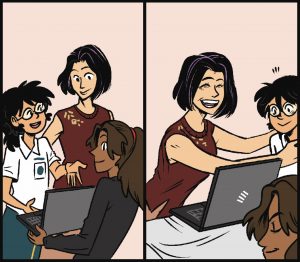
Open communication is key
Great mentors communicate effectively to suit the personality style of their mentee. While one student may prefer a more hands-off approach, another might benefit from a little guidance. A good mentor also provides mentees with relevant challenges that can aid in their development – creatively or academically – and foster the feeling of accomplishment in their respective fields.
Mentors also provide constructive feedback to their students, and are willing to debate and discuss in a tactful manner. Giving useful, honest guidance helps mentees take charge of their potential and make their own decisions, as well as have their thoughts, opinions and feedback heard. This helps not only students in building confidence, but also mentors in guiding their mentees better on the route they wish to take.
Alongside being honest, giving constructive criticism, and providing guidance, a big part of investing in a mentee includes giving encouragement. While this delicate balance can be a challenge to achieve, great mentors support their mentees, and let them know when they’re doing a great job.

Realising and uncovering potential
Mentors not only work hard to realise the potential of their mentees, but also try to understand why they look at things the way they do. Picture two students. One loves designing items, and they are pretty certain that they want to create a spectacular piece of clothing in the near future. The other student doesn’t know much about design creation, but they want to try their hand at it – without any strings attached.
A mentor would keep an open mind and provide both these students with the same opportunity for exploration, and trial and error – even if one or both of them might choose not to pursue the craft. Why is one student so passionate about designing? Why is the other curious about it? Helping a mentee understand their perspective can help them better understand themselves and their potential. This safe space allows students to experience skills that they are curious about, without the obligation to stick with something they might not enjoy in the long run.
While Miss Tilly knows that Aqi is more invested in crafting than Yong Qiang, she gives them both the opportunity to work with the different machines in the Maker’s Lab, and provides them with the necessary guidance along the way.
As such, mentors don’t only want students to be the best version of themselves, they also want them to explore greater heights and master the skills that they already have – keeping in mind that not every student will choose to stick to the same path as another.
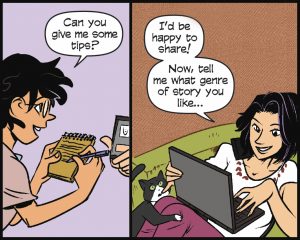
Going the extra mile
Who would you consider the most impactful mentor figure in your life? Perhaps it was your form teacher who constantly checked in on you, or maybe it was your activity club’s teacher-in-charge with whom you had an innate rapport with. Regardless of whichever it may be, the mentor figures who leave the biggest impression on us tend to be those who take pride in their responsibilities as a mentor, and go the extra mile for their mentees.
Mentors are eager to invest in their mentees as a person, extending beyond their academic and creative pursuits, to include discussions about behaviour, values, and relationships. They get to know their mentees and take an interest in their personal lives, providing them with confidence beyond the curriculum.
Just like Miss Tilly from The Makers Club series, this group of mentors do not shy away from helping mentees outside their predetermined scopes. Although Miss Tilly is a librarian, instead of just pinpointing Nadia and Priya to suggested reading materials on game design and coding, she volunteers her own programming knowledge to help the pair with their science project.
Even though coaching and tutoring came out of her own hours, Miss Tilly continues to help because she is invested in not only the short-term goal of completing their science project – she is invested in Nadia and Priya’s long-term growth as makers.
Mentors don’t view lessons or coaching sessions as a chore – great mentors are positive and enthusiastic about their subject matter and they view the engagement of students as a privilege.
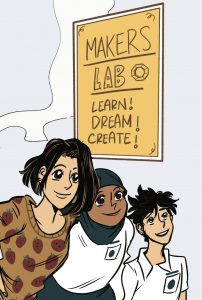
Creating external support structures
While learning and self-discovery are inward looking processes, they should not be done in isolation. Having a mentor by one’s side can give the mentee support and courage in new endeavours, but the mentor alone should not constitute the entirety of the mentee’s support structure.
As the mentee continues forth on their journey, a good mentor can start providing access to external groups or individuals from whom the mentee can learn from. Having others around on similar journeys or those who are subject matter experts can offer the mentee new perspectives.
In the case of Pangolin Secondary School, even though students may express interest in making and maker education but no formal channels for those exist. To bridge the knowledge gap, Miss Tilly founded the Makers Club along with Aqilah and Yong Qiang, and invited the rest of the school population to join. Thereafter, makers who wish to explore techniques and methods can consult not just Miss Tilly, but each other as well.
This creates a positive feedback loop of learning and refining that is centred upon the individual mentee – and one that can be brought to any environment with or without the mentor’s presence.

Finding their place in the classroom… and the world
Mentoring does not stop when the specific task your mentee requires help on is complete. What separates a good mentor from a great one is what happens after: How will you help your mentee redefine their goals and vision to ready them for the next step of their journey?
Traditional curriculum is set along a set of predefined railroad tracks. Marked by chapters, assignments, and exams, students are passengers on a course with little autonomy. When no longer bound by the perimeters of the traditional classroom, students may find themselves at a loss as to how they can map their academic goals to the wider world.
Mentors can therefore serve as an anchor to the wider world for their mentees, grounding their classroom activities into real world terms. Like how Miss Tilly encourages Aqilah to explore her interest in design and craft, by taking careful note of what each mentee exhibits interest and proficiency in, mentors can gradually provide opportunities for their wards to explore and discover adjacent skills and competencies. This does not mean that mentors need to have all the answers either – it is a journey of discovery for both parties.
Over time, each mentee will be able to leave their classrooms equipped not just with academic credentials, but also a road map to a greater adventure shaped by their own two hands.
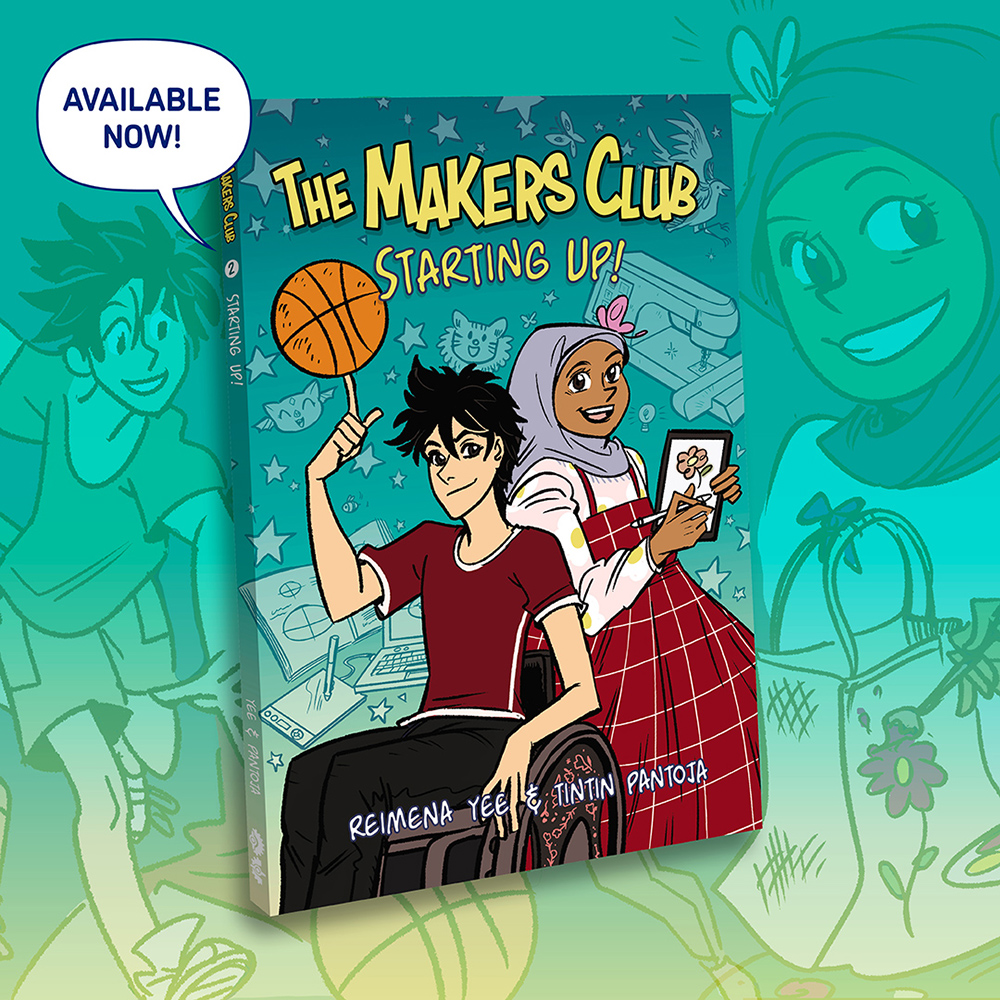
To see how Miss Tilly mentors the Makers Club quartet, check out The Makers Club: Starting Up! here. Now available in print and ebook formats!

